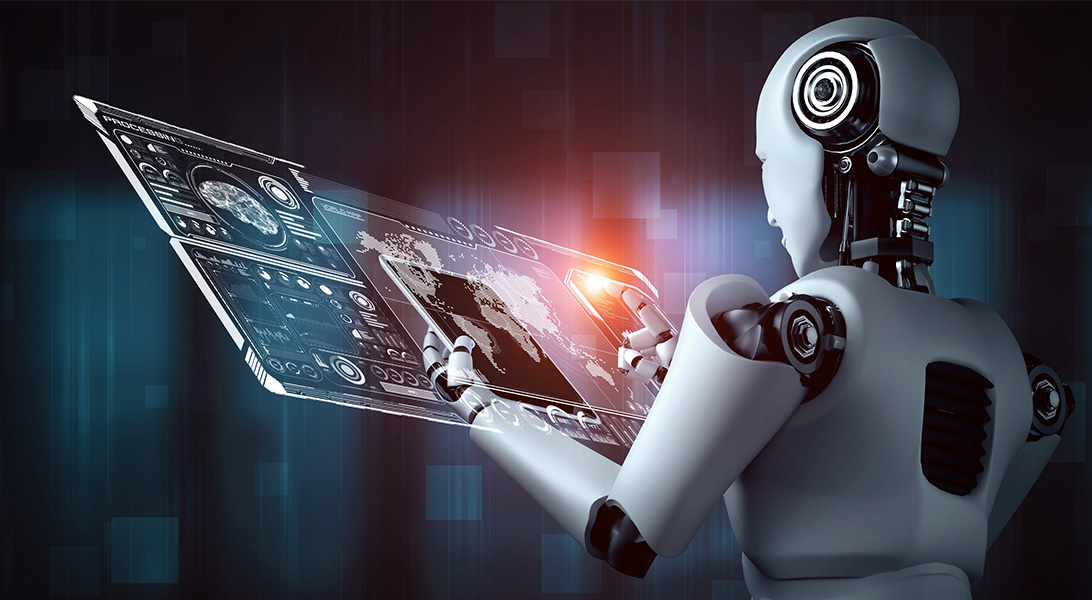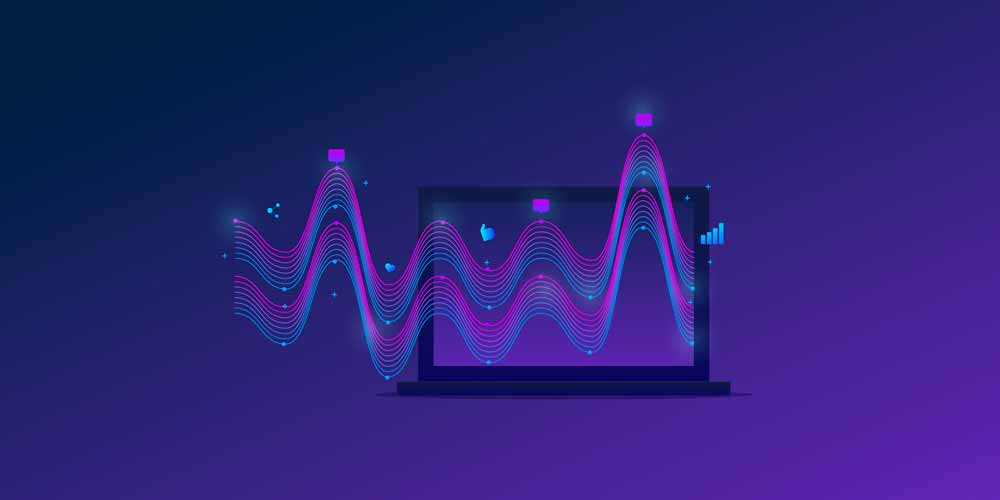Tabella dei contenuti
Artificial Intelligence in marketing is the beginning of a communicative revolution in the digital field that will bring (and in part has already brought) significant changes in the future years, such as better profiling consumers and defining their needs to launch targeted advertising campaigns. AI Marketing in Italy has been consolidating even more recently, embracing new areas that shift the level of digital communication towards a more strategic step. But what is meant by AI marketing? We will see it in this article, where we will go deeper into its meaning, functioning and the advantages that a company can derive from choosing to integrate it into its promotion system.
AI marketing: what it is and what it is used for.
To understand how artificial intelligence can be exploited in a company, however, we must first start by defining what AI marketing is and how it works. AI marketing or artificial intelligence for marketing is the set of artificial intelligence solutions applied in digital marketing to refine the tools to know ourselves and first of all consumers in order to convert them with a persuasive and personalized CTA (call to action, such as buying a product). In other words, artificial intelligence marketing is the result of a combination of algorithms that automate complex functions and advertising communication techniques to support market analysis activities, target management, content creation and much more, as we will see later.
Ai marketing and user behavior
By using artificial intelligence in marketing, every company has the possibility to plan and implement more effective customer experience strategies in line with consumer expectations with the sole aim of intercepting the public and converting each user into a lead. In other words: AI marketing allows you to create advertising campaigns based on user behavior, predicting their purchasing behavior and suggesting to the CMO (chief marketing officer) the actions to be applied to refine persuasion techniques in view of a more effective strategic communication towards users in target with the company’s objectives. For example, if you know a user’s habits, it is possible to determine the most suitable time to send them a newsletter, an invitation to the most important corporate event of the year, a presentation etc. by implementing AI email marketing.
Marketing machine: how it works and what is the AI process
To achieve user conversion, it is necessary to start a marketing machine process, structured in 3 phases:
- The collection of data from potential customers or in general from the public in target with the company’s marketing campaign.
- The transformation of data into information (reasoning), the most important phase in which AI marketing automation plays a central role.
- The planning of strategies (action) to obtain a persuasive conversion of users in target.
Uses and technologies of AIM (Artificial Intelligence Marketing)
At a practical level, the use of AIM therefore translates into:
- software that performs actions or interacts, through written words or voice commands, with end users, such as the virtual assistant or chatbots that in fact constitute the first contact of corporate customer care with the customer;
- personalized indications on customers’ tastes, i.e. recommendation systems aimed at profiling the customer starting from information that the user has provided (for example a previous purchase).
From the point of view of technology application, this means being able to exploit artificial intelligence in digital marketing to:
- create more persuasive content, starting from a detailed knowledge of target data, with natural language and also combining video and images to support the textual element.
- Guide users’ choices through AI-based chatbots and virtual assistants. It cannot be forgotten how much consumers already use voice search systems such as Siri, Alexa, Cortana.
- Shape the target’s propensity for action and/or purchase in order to publish targeted advertisements. That is to say, to carry out programmatic advertising campaigns.
- Model marketing actions based on an improvement process that exploits machine learning algorithms. A clear example is the real-time determination of the price of a specific product.
- Estimate lead generation activities through AI marketing automation for a higher probability of conversion and optimization of so-called demand generation, i.e. the acquisition and management of potential customers.
The main advantages of using AI in marketing a company.
Those who decide to adopt AI in the corporate marketing funnel will therefore be able to derive great benefits:
- collect user data to be integrated into marketing campaign management platforms and map interactions to generate accurate reports and insights.
- Personalize content with more engaging communications aimed at a specific call to action. In this sense, the impact of artificial intelligence on content should not be a concern because, in truth, AI and web marketing are a perfect combination: on the one hand, algorithmic intelligence allows communication to be calibrated in a more precise and objective direction and on the other hand human creativity will contribute to a successful marketing activity.
- Create predictive models on customer behavior, intercepting their interests and needs.
- Optimize advertisements, from the choice of the most suitable channels to the definition of the budget needed to achieve a certain result.
- Analyze performance to enhance investments.
- Maximize and diversify return on investment (ROI), adjusting campaign targeting towards new market targets.
- Improve customer relationships thanks to automatic support or assistance that ensures the first communicative step where humans cannot be present (for example, the use of chatbots to provide assistance to e-commerce customers in the evening/night hours).
- Halve decision-making times for a marketing action by virtue of using an automatic learning model.
In this way, companies that decide to use artificial intelligence in communication and marketing processes will be able to manage data flows, quickly collect insights and use them to create a more competitive tailor-made customer experience.








